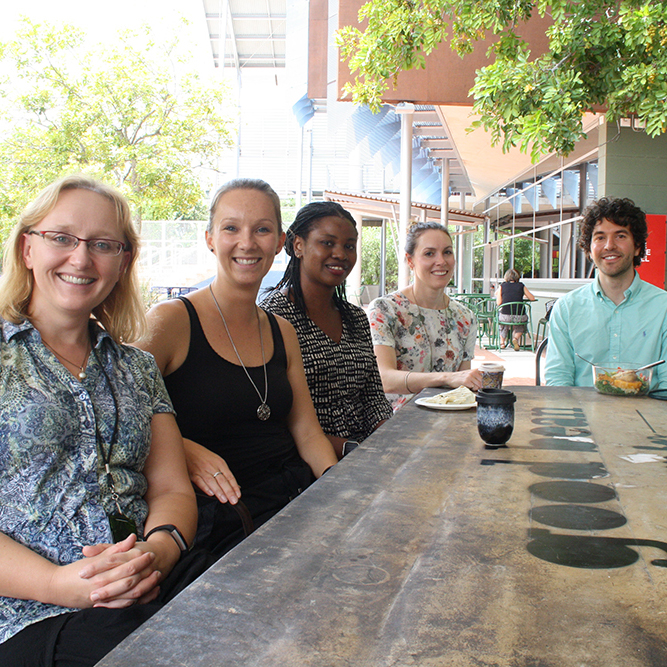A new network has formed to support the growing number of people embarking on research careers at the University of the Sunshine Coast.
The USC Early Career Researcher Network will hold its first event on Monday 3 December inviting early-career researchers from a range of disciplines and campuses to a panel discussion about how to write successful grant applications.
The event will be held from 12pm to 2pm at USC Sunshine Coast campus room E2.24, and those wishing to join can email ecr@usc.edu.au
USC Deputy Vice-Chancellor (Research and Innovation) Professor Roland De Marco said the formation of the network was timely as the University entered a phase of unprecedented growth in research capacity.
“USC is a 23-year-old University, but our research community is rapidly coming of age to the point that we are attracting new major national research grants and appointing internationally competitive researchers,” said Professor De Marco.
“The time is right to formalise the support and opportunities we offer to researchers who are still early in their careers as they learn the intricacies of working in academia and how they can maximise their opportunities in the field.”
As well as tips to apply for funding grants, network members can learn how to develop relationships with mentors, write for publications, manage conflicting workloads and meet with others from a range of disciplines.
Network organisers Dr Mia Schaumberg and Dr Nina Pollak have invited their peers to join them at the first event, which will feature USC researchers Dr Kate Mounsey, Dr Anna Potter and Dr Gemma Read talking about their successful applications for Discovery Early Career Researcher Awards.
“Once you come out of a PhD, you can be an expert in the subject matter but there are a lot of other nuances with being a successful academic – such as grant writing - and making it through these early days can be a bit of a challenge,” Dr Schaumberg said.
“Early career networks encourage sharing across disciplines and can really open your mind and motivate you to explore new ideas.
“We have had interest from about 40 members already from USC campuses from Fraser Coast down to Caboolture, and we welcome other early career researchers, including final year PhD students who might be thinking about their options post-PhD, who would like to join the network,” Dr Schaumberg said.
She said it was an exciting time for researchers at USC.
“We have growing facilities, plenty of opportunities, excellent support, and world-class researchers to work with,” she said.
“You don’t have a to be in a big university in a big city centre to do the research you want to do and make a real difference.”
Dr Schaumberg, a lecturer in physiology and researcher in the field of ageing and movement, moved from The University of Queensland earlier this year.
Dr Pollak is a CSRIO Synthetic Biology Future Science Research Fellow investigating new possibilities to ensure environmental health and protection.
Media enquiries: Please contact the Media Team media@usc.edu.au

